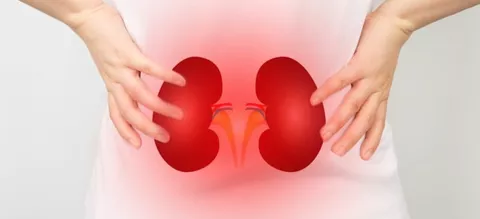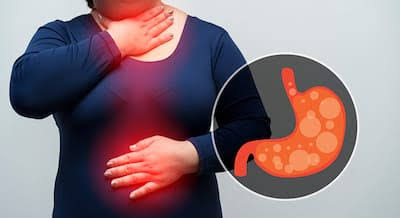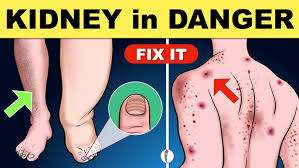Kidney illness is sometimes referred to as a “silent killer” since its early signs are often overlooked. Early warning symptoms may indicate substantial damage. However, if you pay great attention to your body, several warning signals can help you spot kidney problems before they progress.
Here are ten indicators that may suggest you have renal disease:
1. Fatigue and Weakness
Feeling weary and weak all the time may be an early indicator of renal disease. Healthy kidneys produce erythropoietin, a hormone that aids in the production of red blood cells.
When your kidneys aren’t working properly, hormone synthesis declines, resulting in anemia, which can cause weariness and weakness.
2. Changes in Urination
Changes in urine patterns are one of the most visible indicators of renal disease. This could mean urinating more or less frequently than normal, particularly at night.
You may also notice that your pee seems foamy or bubbly, indicating protein in the urine, or that it is darker than usual. If you have pain or difficulty urinating, this could suggest a kidney condition.
3. Swelling in the Legs, Ankles, or Feet
When your kidneys are unable to remove excess fluid from your body, it accumulates in your tissues and causes swelling (edema).
This is most typically noticed in the legs, ankles, and feet, although it can also affect the hands and face. Persistent swelling may indicate a problem with your kidneys’ fluid balance.
4. Shortness of Breath
Kidney disease can cause fluid buildup in the lungs, leading to difficulty breathing. Additionally, anemia caused by kidney disease can reduce the body’s oxygen supply, resulting in shortness of breath. It’s important to get checked for kidney problems if you find yourself easily winded or having difficulty breathing.
5. High Blood Pressure
High blood pressure is both a cause and an indicator of renal disease. Damaged kidneys struggle to regulate blood pressure, and uncontrolled high blood pressure can cause severe renal damage.
If you have high blood pressure that is difficult to control, it may be due to kidney problems.
6. Nausea and Vomiting
Kidney illness can cause a buildup of waste in your system, making you feel queasy and possibly vomiting....Read Full Article [Click Here>]
Uremia is a disorder that occurs when your kidneys are not adequately filtering toxins from your body. Persistent nausea and vomiting should not be overlooked, especially if they are accompanied by additional symptoms listed below.
7. Loss of Appetite
A decreased appetite is another indicator of renal illness. The accumulation of waste in your blood can make eating less attractive and cause an overall sense of discomfort. If you observe a severe drop in your appetite, especially when combined with other symptoms, it may be time to see a doctor.
8. Muscle Cramps
When your kidneys aren’t working properly, you can develop electrolyte imbalances such as calcium and phosphorus.
This might cause recurrent muscle cramps, particularly in your legs. Muscle cramps can have a variety of causes, but if they occur frequently and severely, renal function may be a concern.
9. Itchy and Dry Skin
Healthy kidneys help balance the minerals and nutrients in your blood, but when they don’t perform properly, you may notice dry, itchy skin. This could indicate a mineral imbalance or toxin buildup, both of which are typical in kidney illness.
10. Difficulty Concentrating
When your kidneys fail to filter waste from your blood, toxins can accumulate and impair brain function.
This can make it difficult to focus, think effectively, and recall information. If you are experiencing more difficulty with attention or mental clarity, it could be due to kidney problems.
If you see any of these symptoms, you should consult a doctor right away.
Early identification of kidney illness can help to prevent future damage and improve your overall health. Your doctor can do blood and urine tests to assess kidney function and determine the next steps.





